Gender equality and AI: Ochanomizu Univ., Fujitsu researchers collaborate to overcome social gap
Fujitsu / May 19, 2023
Business leaders see tremendous potential for AI (Artificial Intelligence) in management-level decision making—like hiring people and rating employees' performance. But a growing number of reports suggest AI mirrors similar biases found in our society, including gender inequality.
Researchers at Ochanomizu University in Japan and Fujitsu Limited launched a joint project "Social Collaboration Program for AI Ethics" in April 2023 to get deeper insight.
University Vice President Masako Ishii-Kuntz, Program Leader Etsuko Saito, AI experts from Fujitsu Research, Vice Program Leader Hiroya Inakoshi and Izumi Nitta discussed their plan to create a society in which women and men play equally active roles.
Gender studies in Japan spearheaded by Ochanomizu Univ.
—As a background to the partnership with Fujitsu, it’s worth noting that Ochanomizu University has a long history of gender study to enhance equality.
Masako Ishii-Kuntz (Ochanomizu Univ.): Ochanomizu University will celebrate its 150th anniversary in 2025. Starting as a teacher-training college for women, we have educated female leaders and empowered them to succeed in a global society.
We were the first in Japan to establish an institute dedicated to women’s studies in 1975. The institute was reformed to become the first research center for gender studies in Japan in 1996.
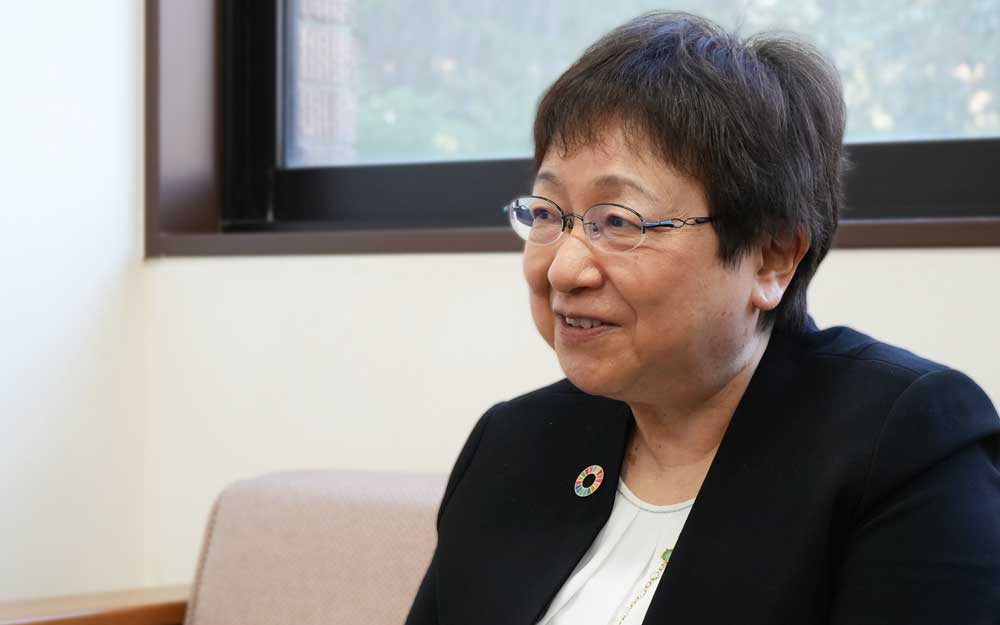
Masako Ishii-Kuntz, Ochanomizu University Vice President
Masako: Last year, we launched Institute for Gendered Innovations to add another valuable dimension.
The Institute for Gendered Innovations offers a state-of-the-art study to analyze biological and sociocultural differences between men and women. It started from the point of view that gender differences need to be integrated into the research and development process. Based on that understanding, we try to develop technology that is friendly to everyone.
Etsuko Saito (Ochanomizu Univ.): I study Household Economics. In my research, for example, I analyze household budgets for each gender. Expenditures on food differ considerably between men and women. Women tend to spend less on food than men. I study why we see such discrepancy.
We also ask, "is it necessary for men and women to have the same expenditures?" I think that's not the case.
I believe gender studies today encompass a very diverse perspective.
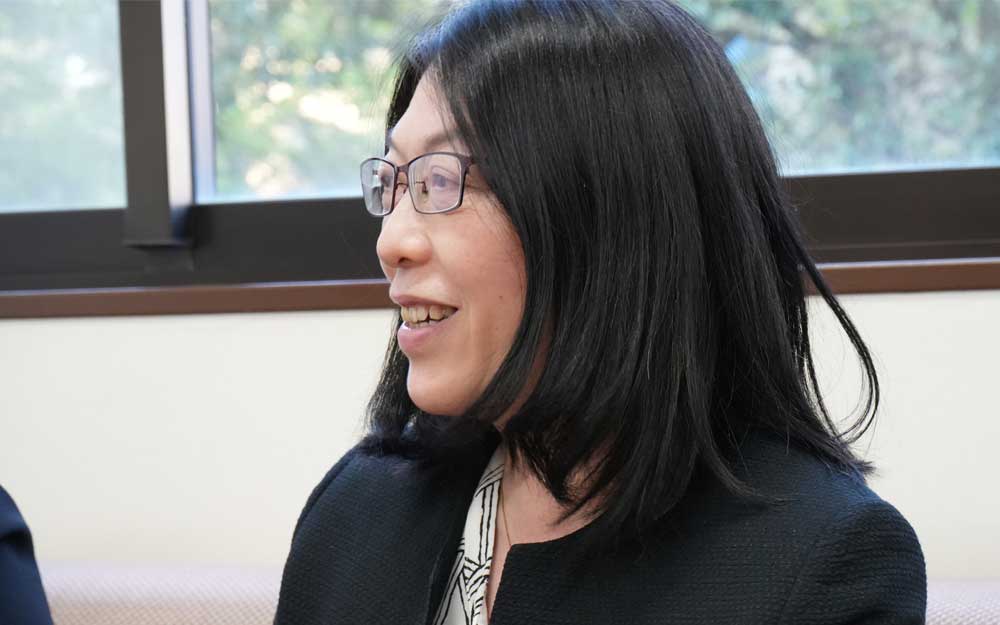
Ochanomizu University Professor Etsuko Saito is the leader of the “Social Collaboration Program for AI Ethics” with Fujitsu.
Human resource assessments and AI
—The use of AI for recruiting and performance review is an ongoing trend. But issues related to gender continue to emerge. One example comes from a U.S. tech company, which reported in 2018 that it found its AI preferring men for software developer jobs.
Masako: I heard of a case where AI used for performance evaluations continually rated the students of women’s universities lower than other students.
Hiroya Inakoshi (Fujitsu): That happens because a typical AI needs a "teacher" to learn from. If a teacher sending signals has bias or errors which we call noise, AI could be incorrect.
In other words, if society has disparity, AI mimics that gap.
Humans can behave conforming to social values and norms. But AI simply behaves as it learned from a dataset regardless of its impact. An AI system could perpetuate attitudes such as, "Men have dominated society so we will continue in that way."
Another characteristic of AI is that it makes decisions much faster than humans, and that speed may further accelerate inequity in the world. Such a scenario is the starting point for our AI ethics study.
Masako: That is very alarming.
Hiroya: Yes, it is indeed.
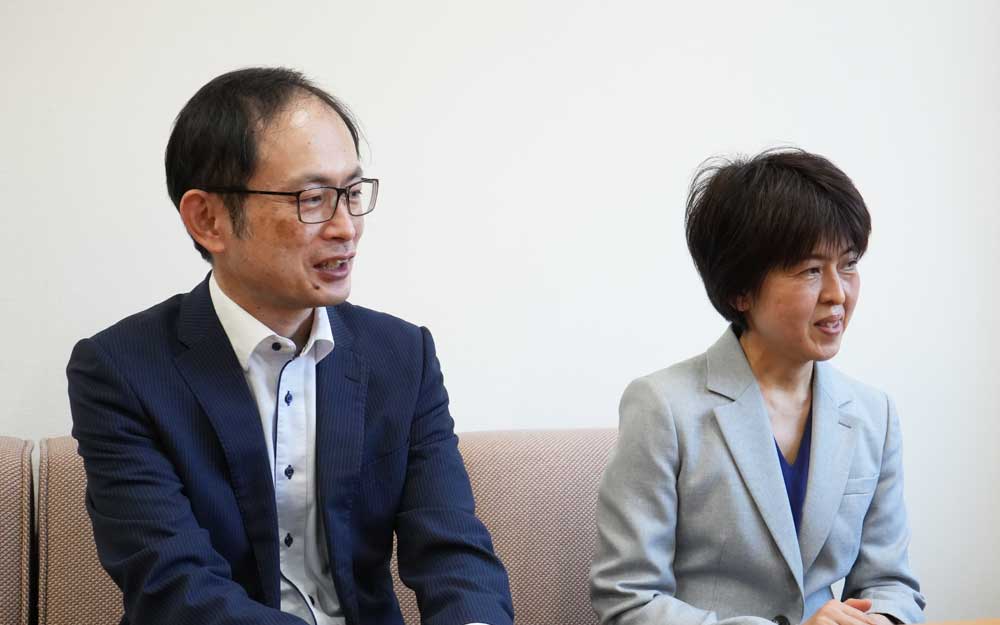
(From left) Hiroya Inakoshi, Senior Research Manager of the AI Trust Research Centre, Fujitsu Research; Izumi Nitta, Senior Research Manager of the AI Trust Research Centre, Fujitsu Research.
Izumi Nitta (Fujitsu): I was recently in charge of developing technology to assess the risks of AI. I analyzed the cases you just mentioned—that people from women's colleges were less favored by AI in the hiring process.
The results looked like a reflection of our society. I am also researching technologies to mitigate such impact, so I hope that we can thoroughly incorporate those methods in the project.
Etsuko: It is so interesting that machine learning mirrors our society.
—According to the World Economic Forum, Japan's 2022 ranking in the gender gap index representing inequality between men and women is 116th out of 146 countries. In particular, the score for the number of women in management positions was low.
Masako: (Asking Nitta) Is the research unit in Fujitsu a man's world?
Izumi: In terms of research, I do feel that women are still a minority.
Masako: Our university is for women, and we have a kind of implicit rules when hiring staff and teachers.
Our faculty is about 50/50 for women and men, including those in management positions. But in the Faculty of Science, female members in the upper levels are only about 20 percent.
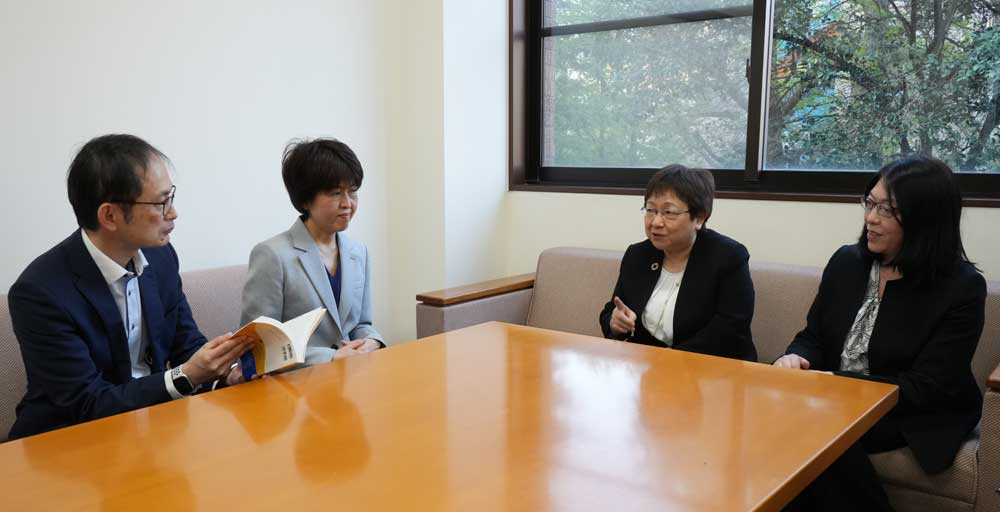
(From left) Hiroya Inakoshi, Izumi Nitta, Masako Ishii-Kuntz, Etsuko Saito. The team discuss risks and possibilities of AI at Ochanomizu Univ., Tokyo, April 2023.
—While the Japanese government urges companies to raise the share of women in management positions to 30% by 2030, a study suggested that the average in 2022 was only 9.4%, according to research firm Teikoku Databank.
Etsuko: I hope to address the issue, setting it as a three-year goal for the project.
The ratio of female managers in Japanese companies is too low compared to global standards. I would like to bring it closer to the target set by the government.
For example, if we set a target percentage of women in management positions, we could calculate how many women we should have before they are promoted. If we calculate step by step, I think we can come up with the overall figure to achieve that goal. I hope that Fujitsu can help with the analysis.
Can technology scale “fairness”?
Masako: I was teaching at University of California about 20 years ago when the movement for affirmative action *1) in the U.S. was at its peak.
I was a member of a committee, and if women and men had the same qualifications, I hired women.
But today, that is changing. In the case of University of California, a board member said that giving special treatment to a darker-skinned candidate is discrimination.
Some people find unfairness when someone gets special treatment. I hope we can approach the issue with AI. I think AI has great potential in creating a program to help build a society where all people could experience fairness.
*1) Affirmative action: An active movement in the U.S. to improve employment or educational opportunities for members of minority groups and for women.
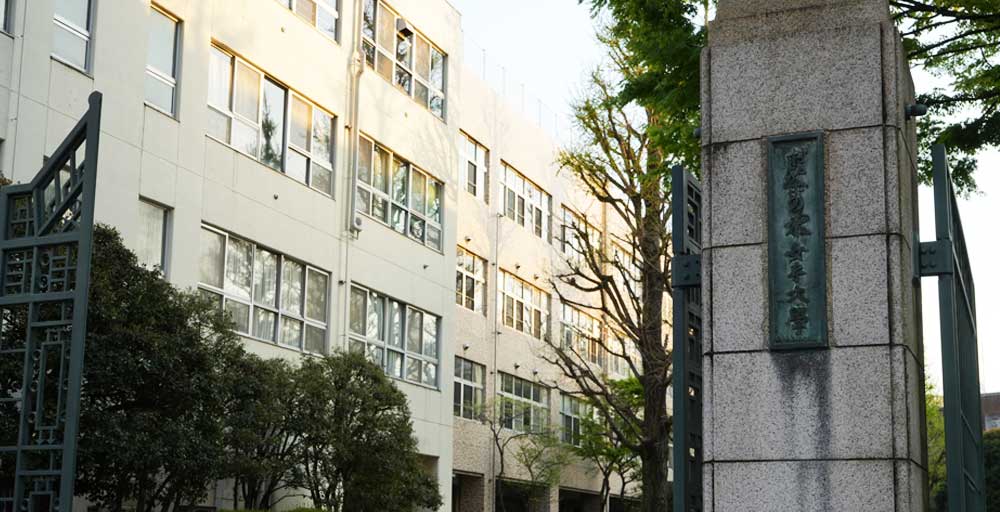
Ochanomizu University in Tokyo is the frontrunner of gender research in Japan.
Etsuko: I once interviewed a group of women in a company. There I found those who are doing relatively well in their careers disliked receiving special treatment for being women.
I think a sense of unfairness within the same gender group may increase the disparity gap among women. The same could be said for men. One example could be men who take paternity leave not being equally promoted.
Izumi: It means a lot to me to learn that things I have experienced as a woman can be defined from a sociological viewpoint.
Masako: Young people today are interested in these issues. I would like to discuss with students how fairness or unfairness can be represented using AI.
Hiroya: I would like to make policy recommendations on what we can do with AI technology to help Japan enhance gender equality.
AI may have limitations in what it can do, but I think it is a challenging research theme and I am very excited to take part in it.
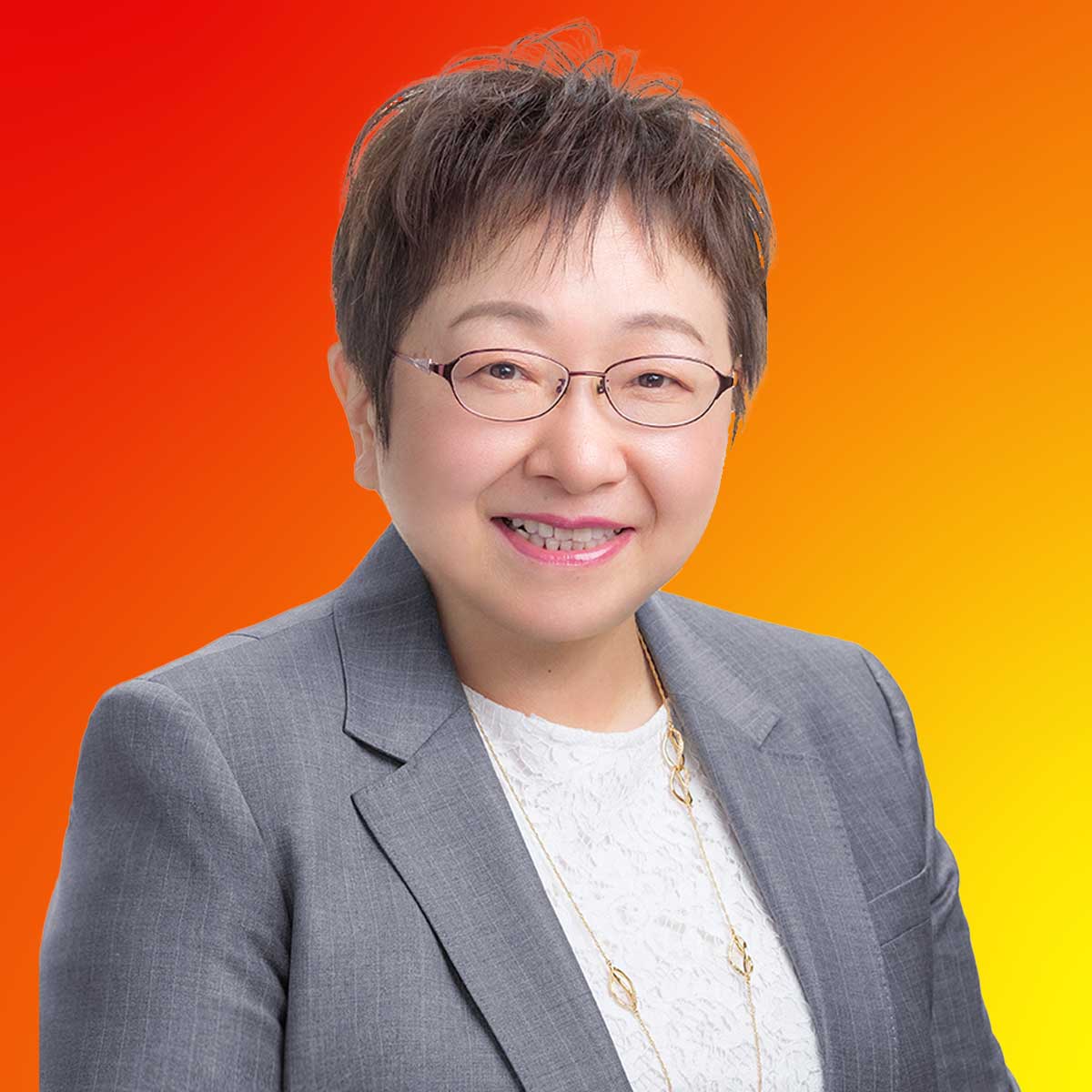
She was the President of the Japan Society of Family Sociology, a member of the UN Expert Group meeting and the Gender Equality Bureau Cabinet Office's committee in Japan.


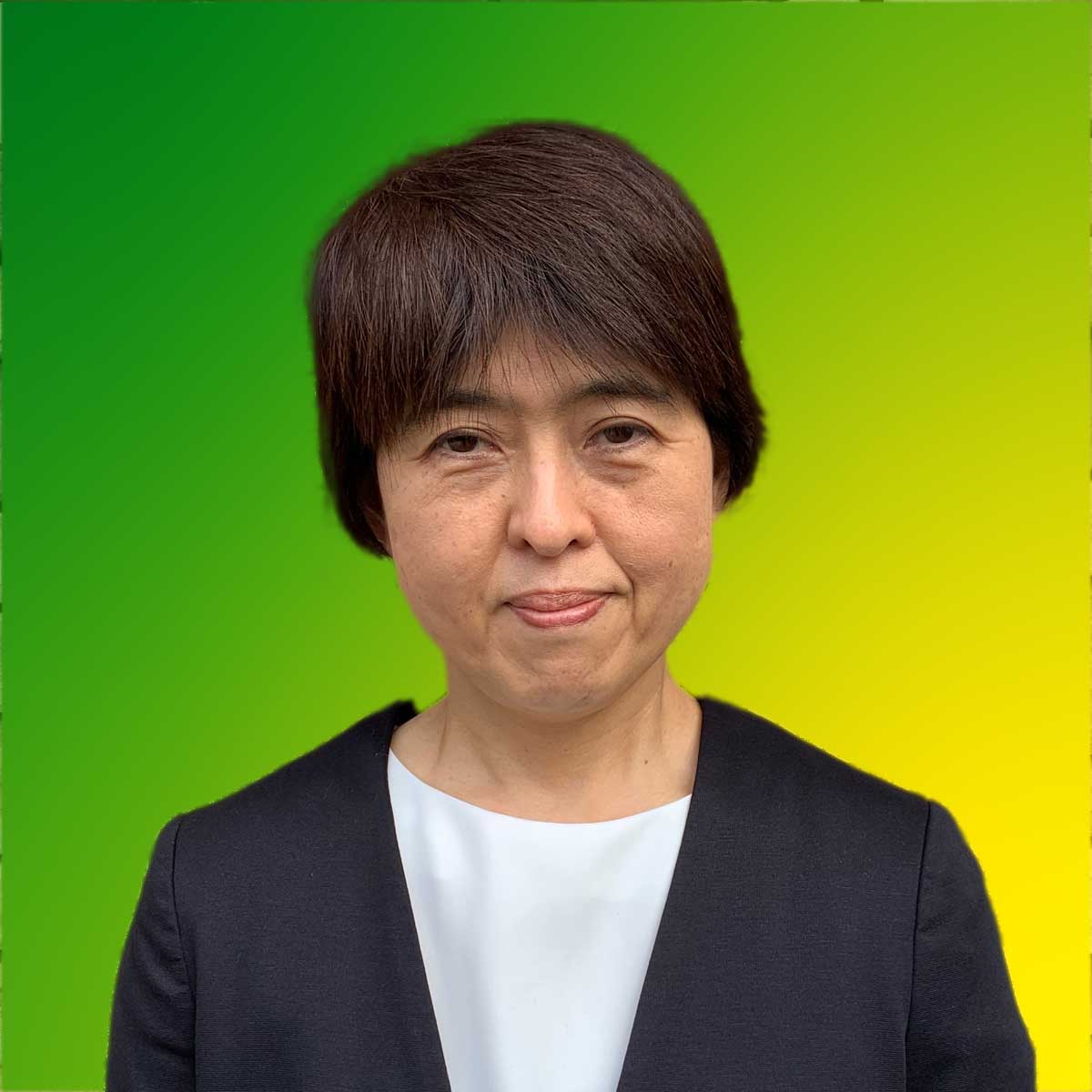
Editor's Picks









